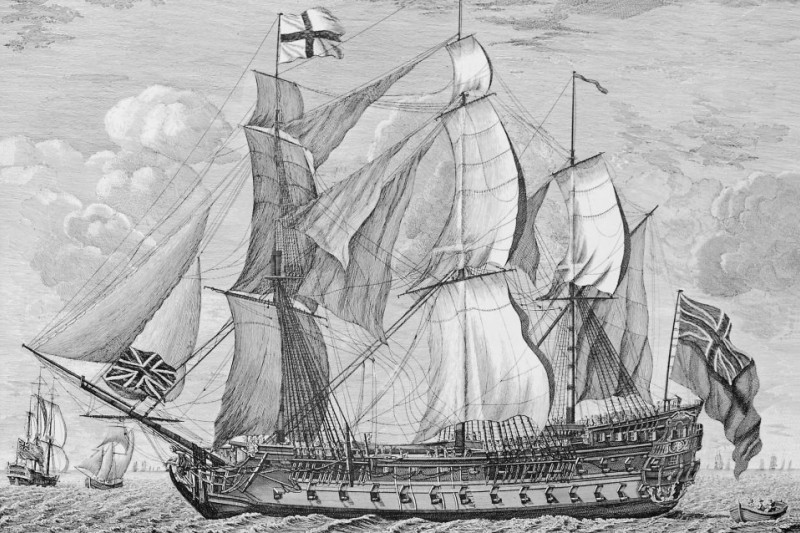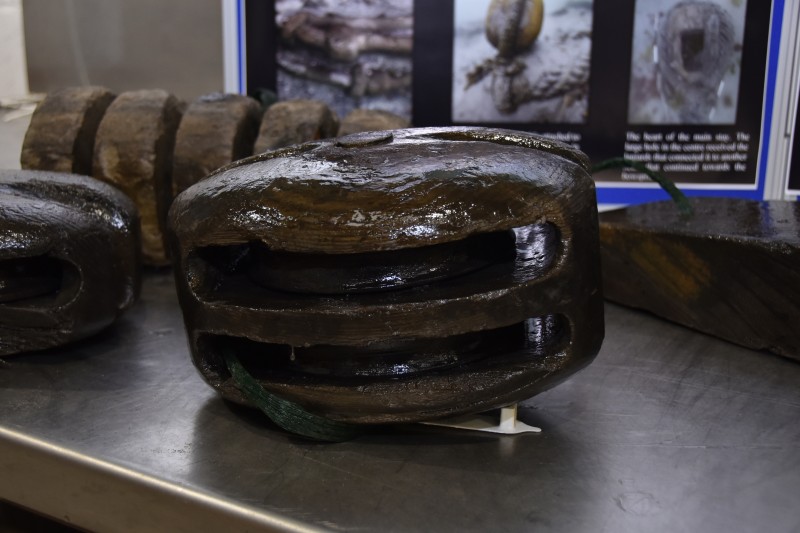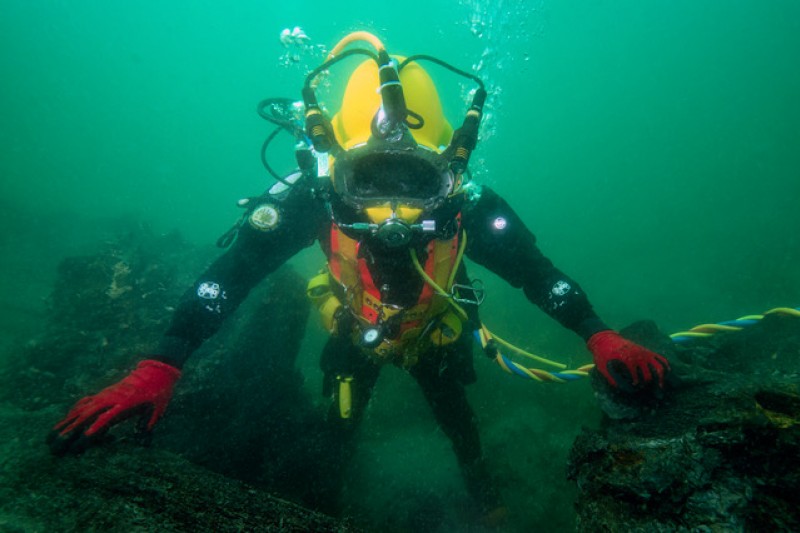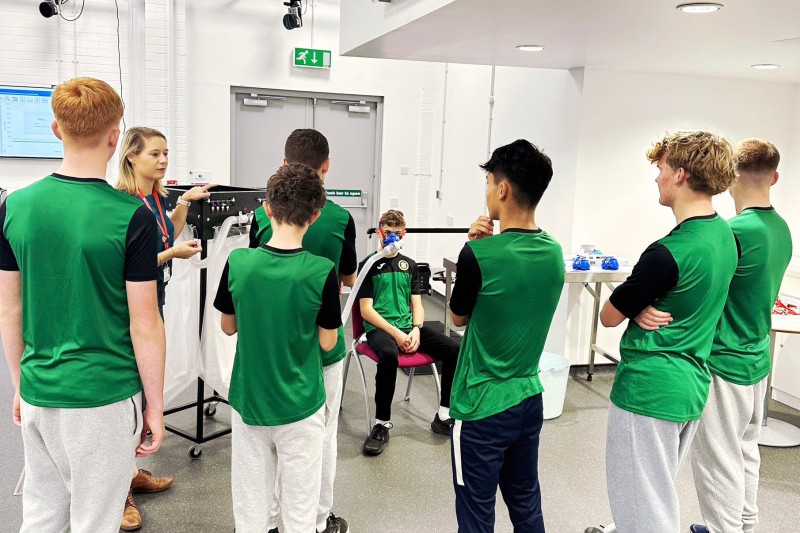After an emergency excavation by archaeologists and divers from Bournemouth University and the Maritime Archaeology Sea Trust, the finds from the wreck of HMS Invincible are at last on display after over 200 years underwater.
Visitors to Portsmouth Historic Dockyard will be transported to the seabed in a brand-new interactive exhibition open now for October half term. Diving Deep: HMS Invincible 1744 explores the fascinating discovery and underwater excavation of 18th century battleship, HMS Invincible which sank in February 1758 when she hit a sandbank in the East Solent.

The year-long exhibition tells the story of Invincible; her capture, the contribution she made to the Royal Navy and ship design and her subsequent sinking and rediscovery by a local fisherman, Arthur Mack, nearly 200 years later. It will also showcase some of the objects and findings from the HMS Invincible archaeological excavation, probably the most important of its kind in UK waters for nearly 40 years.
The project, which is a collaboration with the Maritime Archaeology Sea Trust, Bournemouth University and Chatham Historic Dockyard Trust has been made possible with funding from the National Lottery Heritage Fund. After a year at Portsmouth Historic Dockyard, the exhibition will move to Chatham Historic Dockyard.
Diving Deep will use the latest in digital technology including photogrammetry, 3D reconstruction of the excavation and new techniques in underwater filming captured on a three-screen projection, to bring the often unseen and mysterious world of underwater excavation to life in an innovative and inventive way. Described by Portsmouth Historic Dockyard’s Community Archaeologist Eileen Clegg as “diving without getting wet” the display will allow visitors to get “up close and personal” to the seabed, where the wreck has lain for 230 years and where it will remain.
 Rigging from HMS Invincible
Rigging from HMS Invincible HMS Invincible was a game changer in the way ships were built and influenced the design of one of the world’s most famous and enduring warships, HMS Victory. The 74-gun L’Invincible was originally built for the French navy in 1744 and captured by the Royal Navy in 1747. Her design was so important that by 1805, two thirds of the Royal Navy fleet were modelled on this ship, as were 16 of Nelson’s 27 ships at the Battle of Trafalgar.
She is probably the best preserved 18th century warship in the UK, and excavation over the last three years has been a race against time and tides. The ship was rediscovered in 1979 by a local fisherman Arthur Mack, and designated as a Historic Wreck in 1980. It became crucial to recover items from the ship when it was discovered that the bank the ship sits on was migrating away. Due to the work of the team, the excavation is now complete and Historic England has been able to remove the site from its Heritage At Risk Register.
Full of stores, provisions and equipment, much of the ship survived below the waves and during three years of excavation work, the team recovered significant finds such as swivel guns, a gun port lid, the main stay and even a mop head and bucket. Other finds include clay pipes, wig curlers and a number of bottles – some with their contents still preserved. Some of these items will be on display in Diving Deep and donated to the National Museum of the Royal Navy.
 Diver at the wreck of HMS Invincible
Diver at the wreck of HMS InvincibleProfessor of Maritime Archeology, Dave Parham, who lead the excavation from Bournemouth University, said: “It’s been an honour for all at Bournemouth University who have worked on the excavation and rescue of such an important shipwreck as that of HMS Invincible and we are pleased to see that the opening of the exhibition means that others can now share what we have seen.”
The exhibition is now open and tickets must be pre-booked at www.historicdockyard.co.uk/tickets
You can find out more about excavating the wreck of HMS Invincible here.



